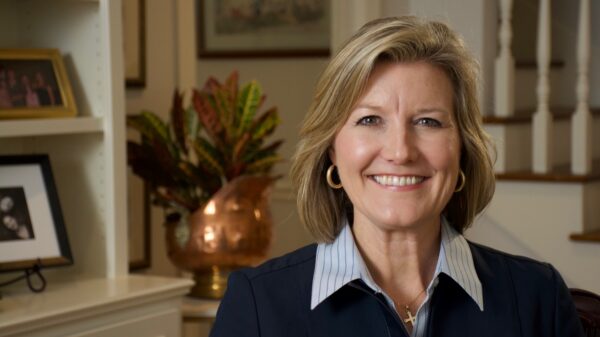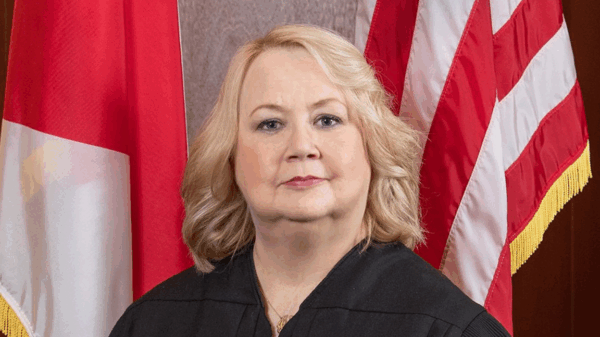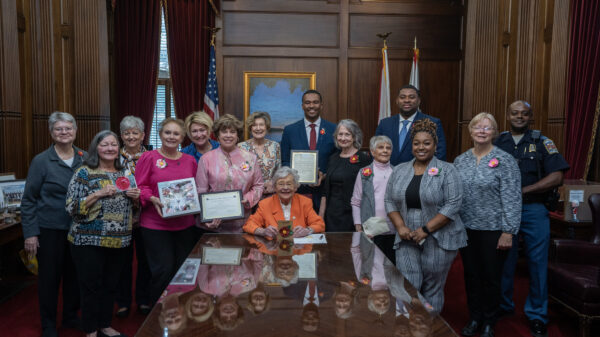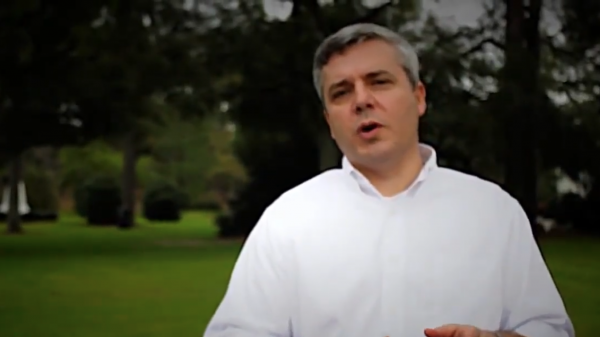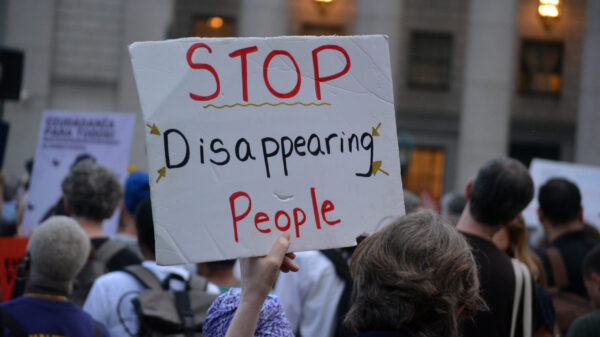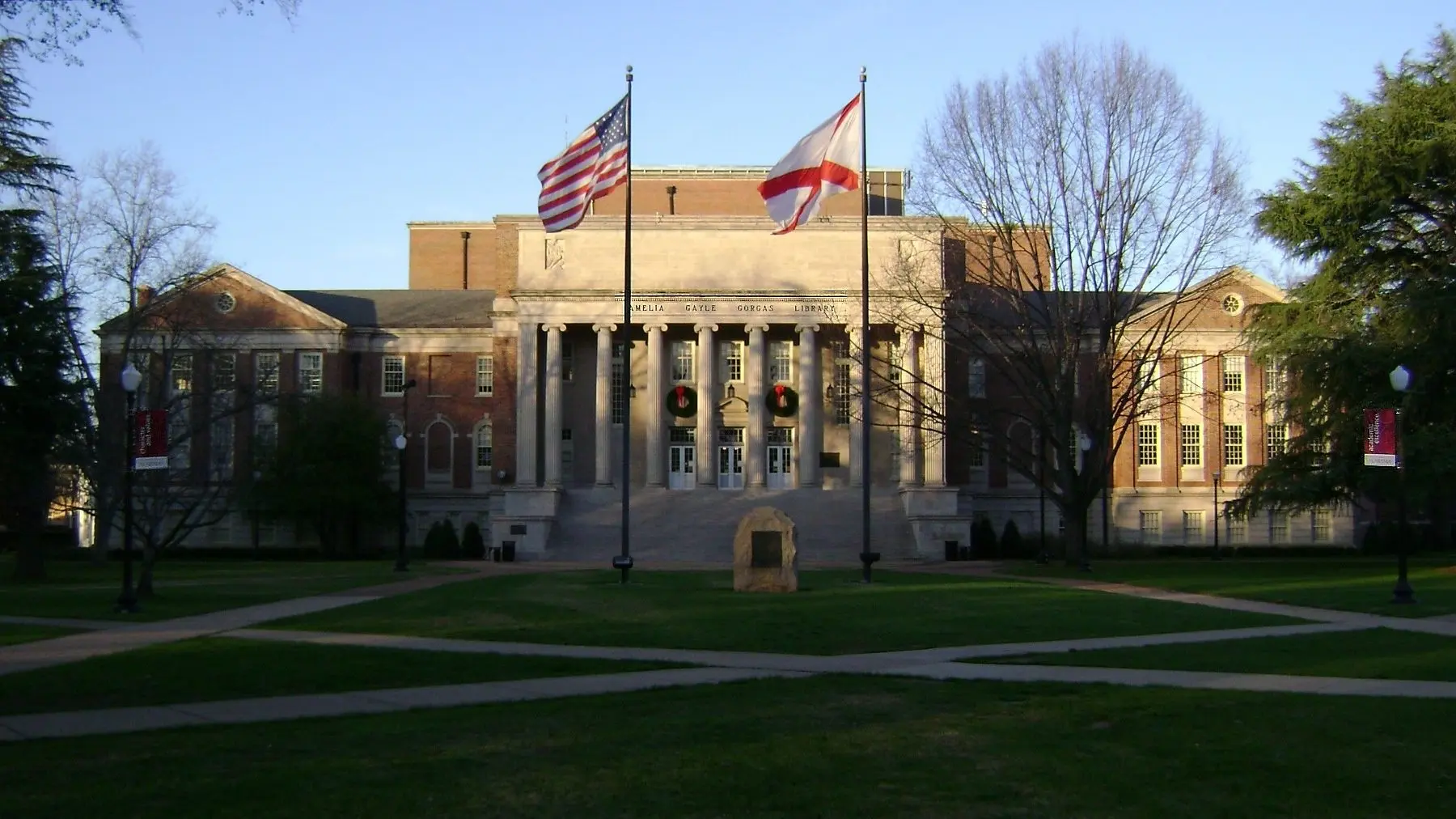On Monday, both the plaintiffs and defendants in the lawsuit over Senate Bill 129 filed exhibits with the U.S. District Court for the Northern District of Alabama as professors and students seek an injunction preventing the state from enforcing the law. Passed into law during the 2024 legislative session, SB129 limits the discussion of select “divisive concepts.”
Reporting by the Alabama Reflector and the University of Alabama’s student paper, The Crimson White, has documented plaintiffs’ testimony in recent evidentiary hearings that the atmosphere created by SB129 has harmed the academic environment.
Political science professor Dana Patton complained that instructors are “fearful of saying certain things in class” during a June 26 press conference. A senior at the University of Alabama at Birmingham, Sydney Testman, said that fear “is affecting my academic freedom and the discourse we have in class.”
The exhibits filed on Monday help show how SB129 has affected professors’ ability to teach at the University of Alabama. They reveal both a general caution on the part of the administration as well as at least one example of concerted pressure by community members who believe courses are insufficiently patriotic.
One email sent by University of Alabama provost James Dalton notes he “would rather be in the position of having cautioned scores of faculty regarding potential violations than meting out a single sanction for a confirmed violation.” That missive was a reply to an email from Professor John Petrovic complaining that the administration’s response to SB129 had cast a “pall of distrust, anxiety, and fear” and criticizing Dalton’s comments on the cancellation of a class “sit-in” as reported by The Crimson White.
“The pall of anxiety and fear inevitably leads to the pall of orthodoxy of which Justice Brennan warned us so many years ago in his defense of academic freedom,” Petrovic cautioned in his email to the provost. “UA must stand with Justice Brennan, perhaps even at risk of legal entanglement. We can accomplish the former and avoid the latter by reading the letter of the law, not broadening its scope in the ways that faculty are currently witnessing.”
Forwarding Dalton’s response to other members of the faculty, Petrovic noted that it “seems that the strategy is to interpret things broadly as a way to protect faculty.”
Another email filed by the plaintiffs reveals the full text of a complaint about the “disturbing shift of focus of our prestigious Dr. Robert Witt University Fellow program,” specifically the preparatory course “Understanding Poverty” that Patton teaches. Patton testified she was told a “powerful person in Montgomery” had put together the complaint; she later talked with Rep. Danny Garrett, R-Trussville, about the matter during a football game.
Some of the quotes attributed to unnamed students in the emailed complaint include that the “program feels anti-American” and the “idea is that the American Dream is bad.” Patton has complained that the administration did not verify whether the quotes actually came from students who were enrolled in her course.
A significant portion of the complaint focuses on attacking the required readings. One quote attributed to a student goes: “books very left leaning……..these books bash landowner, capitalist, promote socialism, redistribution of wealth.”
The person who sent in the complaint including anonymous comments attributed to students also apparently noted there was “no diversity of opinion in the books assigned” and “two of the 4 books are by the same author.” The five books assigned for Patton’s course were “Evicted” by Matthew Desmond, “Poverty, by America” also by Matthew Desmond, “Promises I Can Keep” by Kathryn Edin, “Not a Crime to be Poor” by Peter Edelman and “Left Behind” by Robert Wuthnow.
When “Evicted” was awarded the Pulitzer Prize in General Nonfiction in 2017, it was described as “a deeply researched exposé that showed how mass evictions after the 2008 economic crash were less a consequence than a cause of poverty.” Desmond’s other book, “Poverty, by America,” “Promises I Can Keep,” and “Left Behind” were all based on extensive interviews of poor Americans.
None of the five books except “Poverty, by America” appear to mention either communism or socialism. While Desmond does express warmth toward Democratic Socialist Bernie Sanders’ policy proposals in that book, socialism is primarily mentioned in the context of historical debates about the size and role of the welfare state.
Dalton stated in a supplemental affidavit that the University of Alabama had in fact investigated the complaint. He affirmed that the administration had asked Patton about what course materials she used and her “procedures for facilitating classroom discussion,” but “did not discipline Dr. Patton based on these complaints.”
When Patton testified in June, she told the court she had already begun making changes to the “Understanding Poverty” syllabi in part because she “can’t control how students feel” when they watch assigned documentaries.
In an October memo to an associate provost and the dean of the Honors College, Patton stated she had “never in this class, or in any class I’ve taught in over twenty years, directed or compelled students to affirm, adopt, adhere to, or assent to a ‘divisive concept.’”
The plaintiffs’ proposed findings of fact additionally noted fellow political science professor Richard Fording, also a plaintiff, “has not taught the Politics of Poverty course since SB129 came into effect—for the first time since 1996.”
“He does not believe he can teach the course in compliance that [sic] the instructional standards of his academic field, without violating SB129,” the document reads.
The attorney general’s office, on behalf of Governor Ivey, wrote in a March brief that “Alabama’s law is constitutional, protecting students from discrimination that sorts students by race and compels assent to racial concepts at odds with the State’s curricular choices and our Constitution’s promise of equality under the law.”
Additional briefings are expected this month as the judge considers whether to issue a preliminary injunction.




